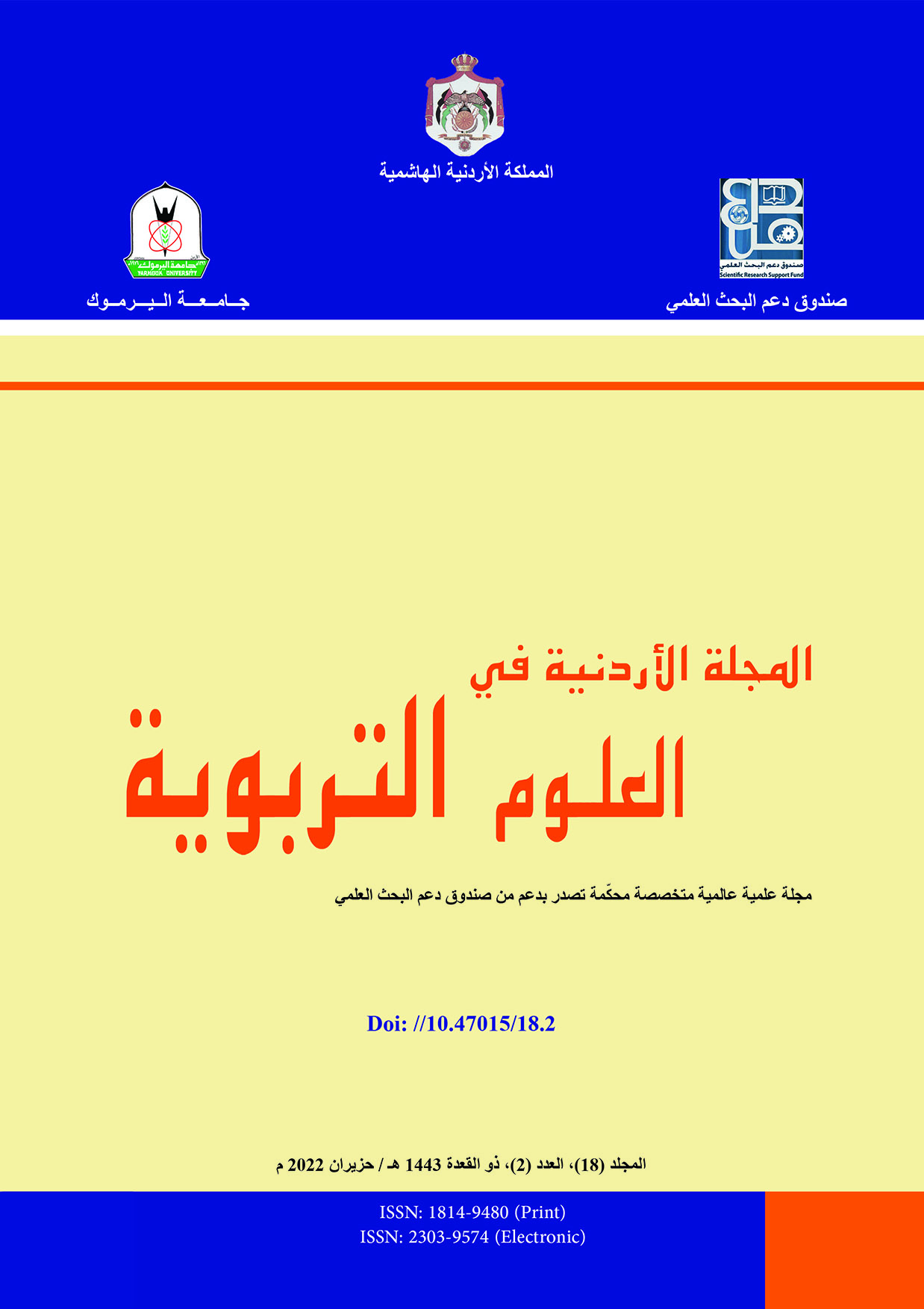فعالية نموذج تدريس تبادلي مقترح قائم على ويب 2.0 في تنمية الفهم القرائي للطلبة الجامعيين السعوديين
DOI:
https://doi.org/10.47015/18.2.11الكلمات المفتاحية:
Developing Reading Comprehension, Saudi-University Students, Reading Comprehension, Reciprocal-Teaching Paradigm, Web 2.0الملخص
تمثل هدف الدراسة الحالية في تصميم نموذج تدريس تبادلي قائم على ويب 2,0, واختبار فعاليته في تنمية مهارات الفهم القرائي للطلبة الجامعيين السعوديين, وبحث الفروق بين الجنسين في الفهم القرائي التي قد تعود إلى النموذج المقترح. اشتملت الدراسة على 120 طالبًا وطالبة تم اختيارهم بطريقة عشوائية من جامعة القصيم, وتم توزيعهم على مجموعتين تجريبية وضابطة. استخدمت الدراسة نموذج تدريس تبادلي قائم على ويب 2.0 واختبار فهم قرائي من إعداد الباحث. بعد تطبيق الاختبار القبلي، درست المجموعة التجريبية باستخدام النموذج المقترح بالاعتماد على الإستراتيجية المقترحة, بينما تلقت المجموعة الضابطة دراستها المعتادة. بعدها تم تطبيق الاختبار البعدي. وأوضح التحليل الإحصائي عدم وجود فروق ذات دلالة إحصائية بين متوسطي درجات طلبة المجموعتين في التطبيق القبلي للاختبار. ووجدت فروق دالة إحصائيًا بين متوسطي درجات طلبة المجموعتين في التطبيق البعدى للاختبار لصالح المجموعة التجريبية. كما أوضحت النتائج وجود فروق ذات دلالة إحصائية بين متوسطي درجات طلبة المجموعة التجريبية في التطبيقين القبلي والبعدي للاختبار لصالح التطبيق البعدى, في حين لم توجد فروق دالة إحصائيًا بين متوسطي درجات طلبة المجموعة الضابطة في التطبيقين القبلي والبعدى للاختبار. كما لم توجد فروق دالة إحصائيًا بين متوسطي الذكور والإناث في المجموعة التجريبية في التطبيق البعدى للاختبار. وقد أثبت النموذج المقترح فعاليته في تنمية مهارات الفهم القرائي للطلبة الجامعيين السعوديين.

